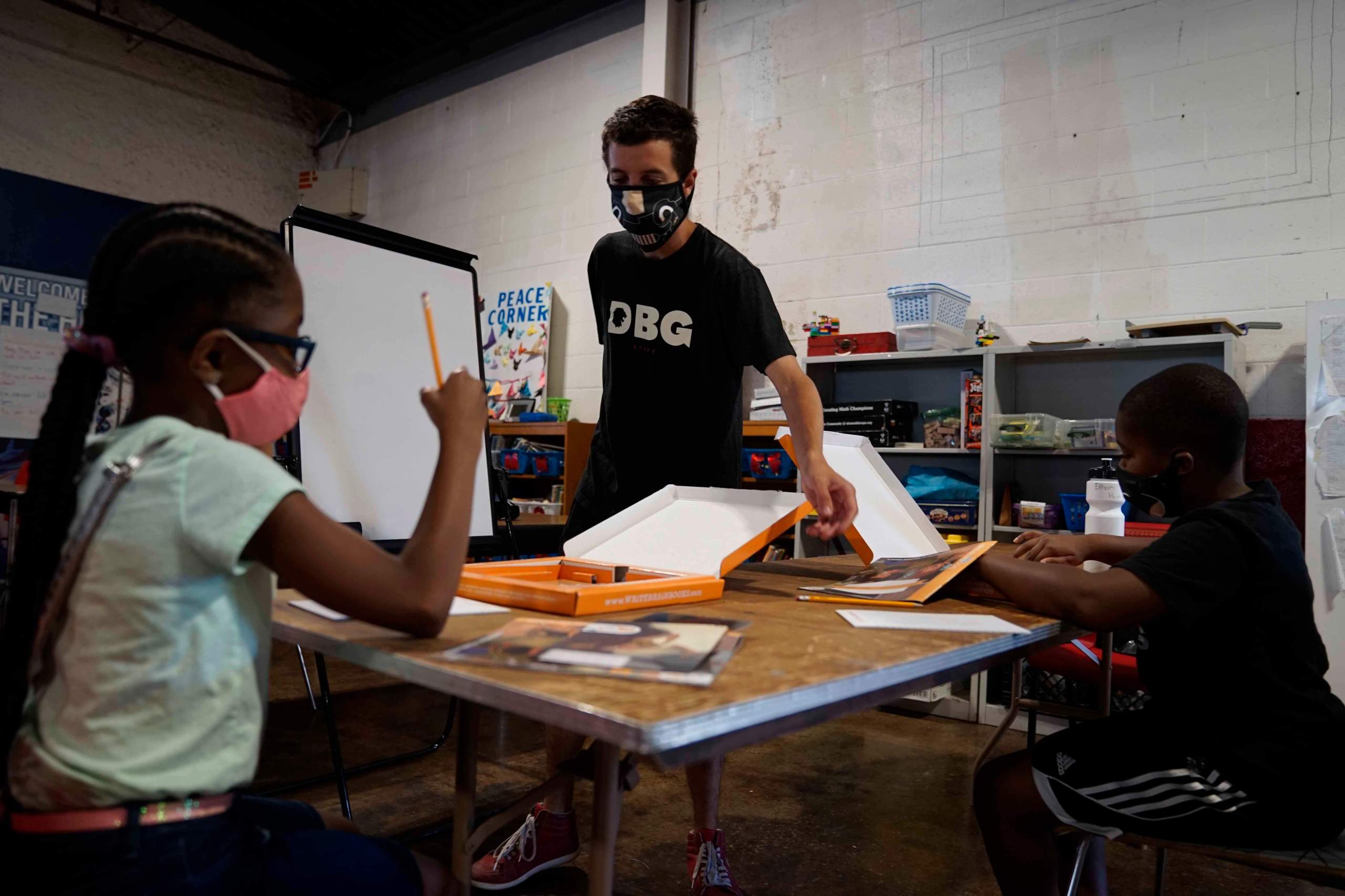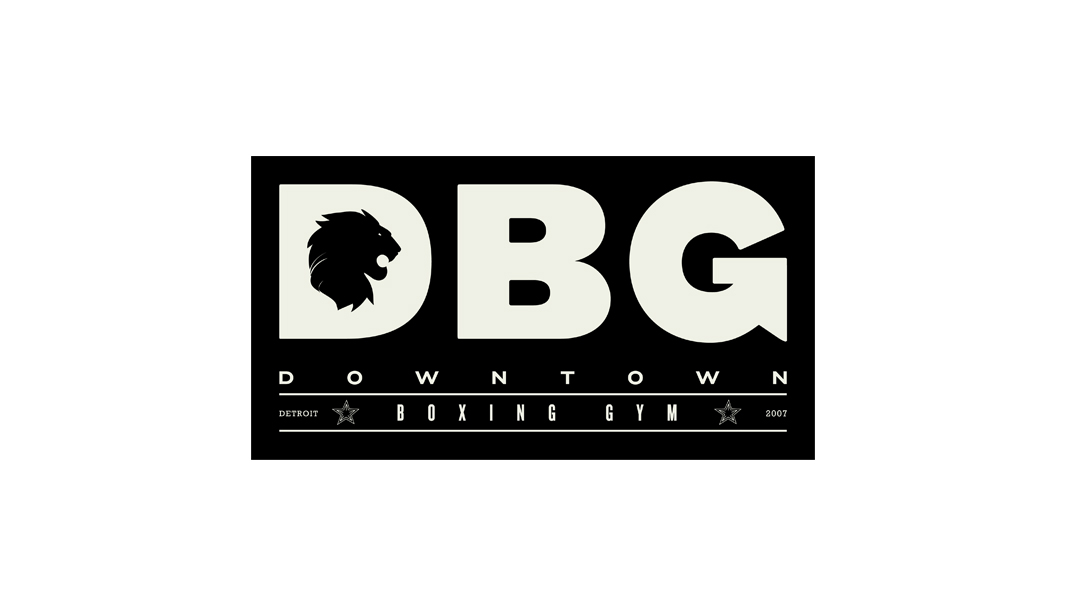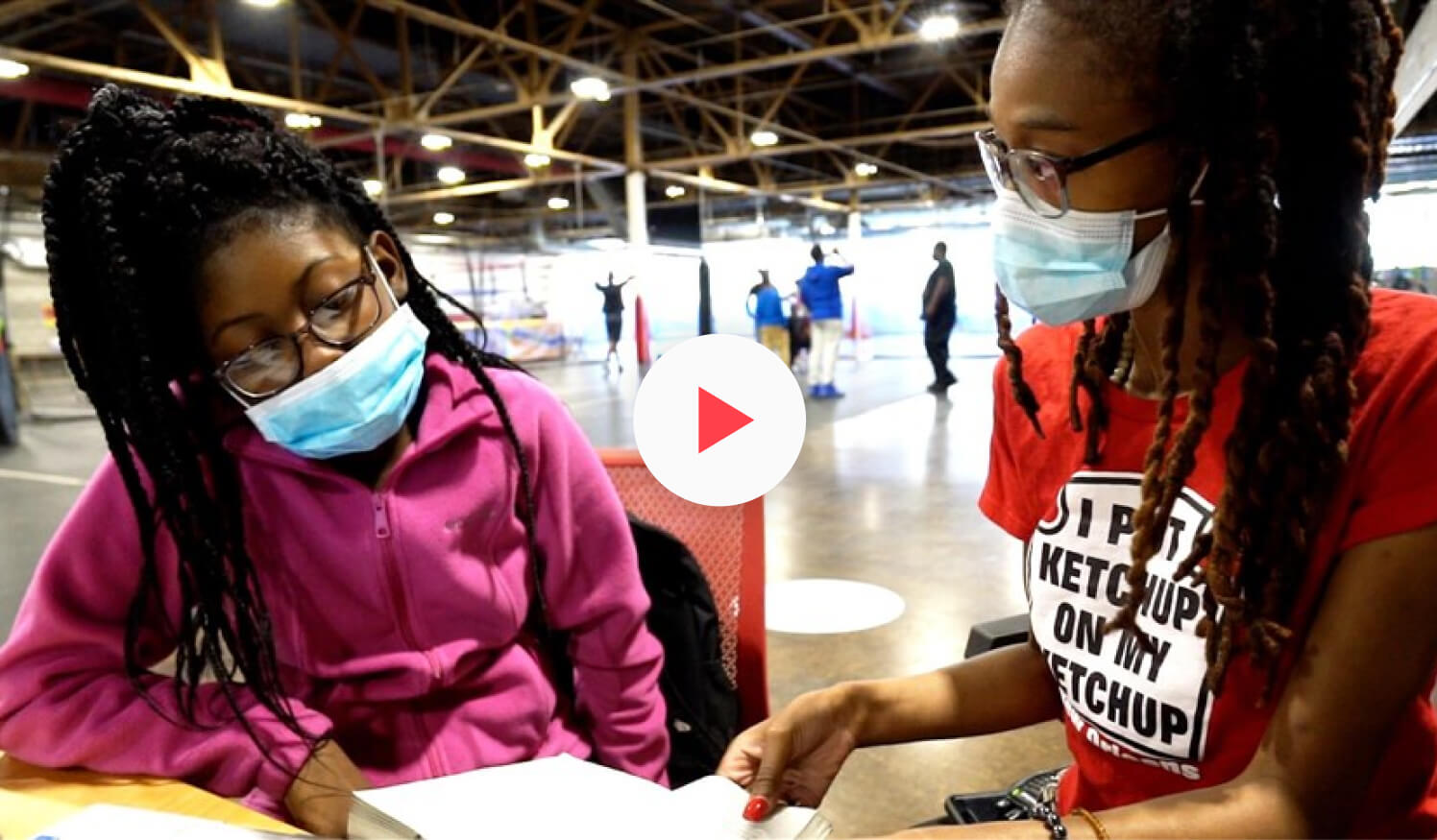Sign Up For Updates

Sorry, marketing cookies are required to view this form.
Downtown Boxing Gym

Whatever it takes to help Detroit students, families, and communities thrive
What happens to an after school youth program when school closes during a pandemic? “The gym closed on Friday. On Monday, we sent home boxes of food and homework packets, and made sure our students could be connected online,” explained Jessica Hauser, executive director of the Downtown Boxing Gym (DBG), which serves Detroit students ages 8-18. “We set up our entire program in a virtual space that first week.”
The gym’s founder and CEO, Khali Sweeney – along with Hauser and DBG’s team of coaches, mentors, and tutors – knew that they would continue to support the academic growth, health, and well-being of more than 150 young people, even if they could no longer meet in person. COVID-19 may have transformed how DBG operates, but the mission remains the same: to give young people the tools and experiences they need to grow and thrive.
“We had to continue the work we started. We started out educating the kids in our community, making sure they had a safe place to go, food, and all of the things that they need,” said Sweeney. “Just because it’s a crisis, that doesn’t mean we stop doing what we have to do – the need is still there.”
CZI supports partnerships between DBG and researchers to examine how funding for youth-serving nonprofits can unintentionally support deficit-based narratives about children of color. These negative narratives have a profound impact on the well-being of the very young people that organizations and funders are trying to serve.
By contrast, DBG takes an explicitly asset-based approach. That starts with recognizing the tremendous potential of each student and creating an individualized plan to help them fill academic gaps through intensive math and literacy tutoring. DBG also offers enrichment programs, college and career planning, mentorship, leadership opportunities, and access to social capital.
DBG’s model is designed to provide students with the life skills they need to make the transition to college and the workplace upon finishing the program and graduating from college. This comprehensive approach has led to a 100% high school graduation rate since the program was founded in 2007; nearly all participants enroll in a two- or four-year college or trade program.
In June, DBG reopened with extensive safety precautions to protect the health of students, parents, and staff. Since Detroit school buildings remain closed, DBG has expanded its programming to full days – from 7:30 AM to 7:00 PM, Monday – Friday. Students receive support with virtual learning, as well as the full DBG program, including boxing and athletics. Everything, from the academic support to meals and transportation, is free to students.
COVID-19 also provided an opportunity to build on the assets of the broader Detroit community. DBG established an emergency food distribution service, bringing in food from local restaurants and helping small businesses retain their employees and weather the shutdown. While the gym was closed, parents who drove DBG’s vans delivered food and supplies packages to families and personal protective equipment to nonprofits across Southeast Michigan. DBG graduates, home after their colleges closed, were hired to support the expanded program.
“We have never viewed DBG as just an after school program,” said Hauser. “We do everything that we can to lift up our students, their families, and the larger community.”
Oct 16, 2020


Visit
dbgdetroit.orgSHARE
Learn more about other CZI grant partners
Gradient Learning The Leadership Academy Van Ness ElementaryWe use cookies to help us improve the site and to inform our marketing and digital content efforts. If you choose ‘Don’t Enable,’ sites you’re logged into – like Facebook and Twitter – may still be able to identify you as a visitor to this site. Learn more.


